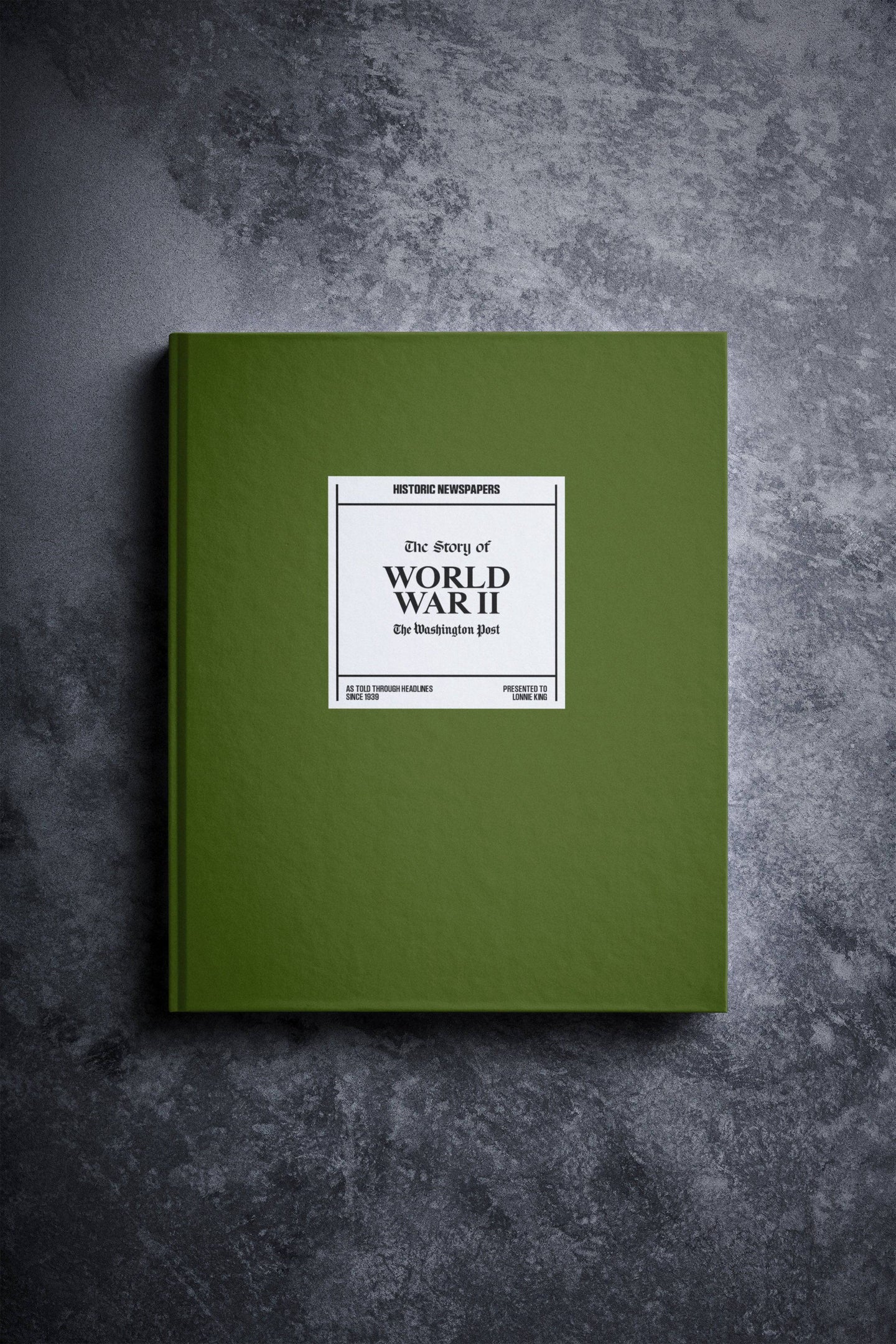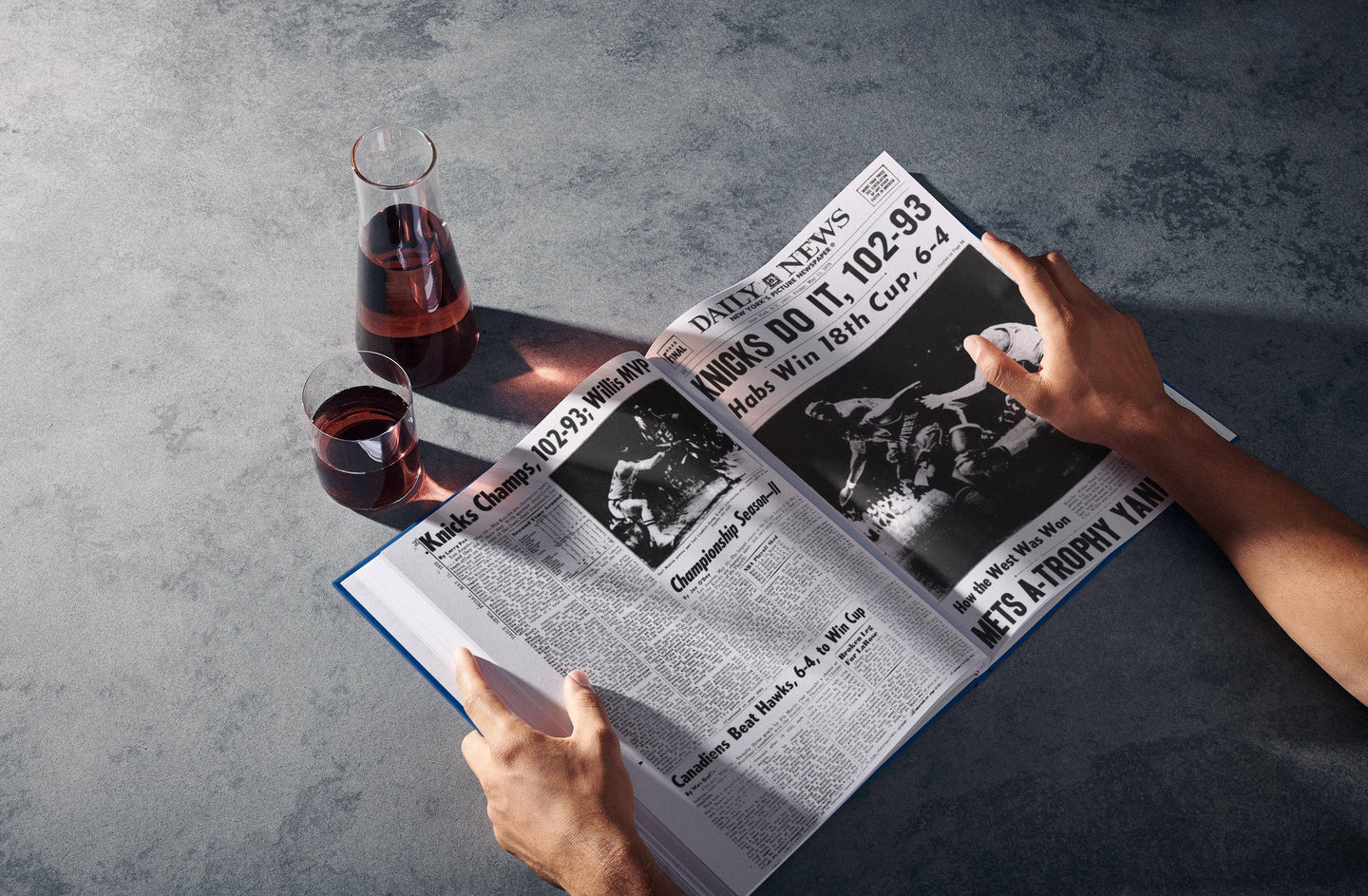How much do you know about the big events in 1925? Find out all about them in our day-by-day timeline. It’s so interesting to see exactly what was happening at significant moments in history, such as when The Great Gatsby was published for the first time and the SS was established in Germany.
You can read about the key events in 1925 and more in a 1925 newspaper.
1925 Timeline
Turn the page to:
- January
- February
- March
- April
- May
- June
- July
- August
- September
- October
- November
- December
- The New Yorker
- The Treaty of Locarno
January
January 1: The capital of Norway changes its name from Christiania to Oslo.
January 1: Notre Dame wins the 11th Rose Bowl.
January 2: The Gorno-Badakhshan Autonomous Region is established.
January 3: Benito Mussolini proclaims himself Il Duce (Dictator).
January 5: Nellie Taylor Ross becomes the first female Governor in the US.
January 6: Mikhail Frunze becomes People’s Commissioner of Military and Native Affairs.
January 8: A Supreme Court of entirely female members is appointed in Texas.
January 10: The Allies refuse to leave Cologne.
January 11: Frank Kellogg becomes Secretary of State in the US.
January 15: Hans Luther forms a government in Germany.
January 20: A convention is signed by Japan and the USSR.
January 21: Albania becomes a Republic.
January 24: A solar eclipse is captured over Long Island.
January 24: Rickard Sandler becomes Premier in Sweden.
January 29: David Lloyd George becomes the leader of the Liberal Party in Great Britain.
January 31: Ahmed Zogu becomes President of Angola.
January 31: Daphne Akhurst wins the Australasian Women’s Tennis Championship.
January 31: James Anderson wins the Australasian Men’s Tennis Championship.

David Lloyd George
Image: Wikimedia Commons
February
February 8: Marcus Garvey is imprisoned in Atlanta.
February 9: A treaty between France and Germany is proposed by Gustav Stresemann.
February 12: The Law on Cultural Self-Government for National Minorities is passed in Estonia.
February 13: Congress makes appeals more difficult in the Supreme Court.
February 14: A state of emergency comes to an end in Bavaria.
February 21: New Yorker is published for the first time.
February 25: The Glacier Bay National Monument is established in Alaska.
February 25: Beatrix Loughran wins the US Women’s Figure Skating Championship.
February 25: Nathaniel Niles wins the US Men’s Figure Skating Championship.
February 27: Hitler reestablishes the NSDAP in Munich.
March
March 2: Socialists demand disarmament in the Netherlands.
March 2: Male suffrage is recognised in Japan.
March 4: The inauguration of President Coolidge is broadcasted live on 21 radio stations.
March 4: The US annexes Swain’s Island.
March 12: The British government refuses to ratify the Geneva agreement.
March 21: Teaching evolution is outlawed in Tennessee.
March 24: Double Chance wins the 84th Grand National.
April
April 3: Gold Standard is reinstated in Britain.
April 3: The Accord of Westerschelde is signed by Belgium and the Netherlands.
April 5: The Belgian Workers Party wins the election.
April 6: A film is shown on an airplane for the first time.
April 9: Babe Ruth is rushed to hospital after collapsing.
April 10: Tsaritsyn is renamed Stalingrad.
April 10: The Great Gatsby by F Scott Fitzgerald is published.
April 16: 150 people are killed and 500 wounded in an attack in Sofia.
April 17: Babe Ruth has surgery on an ulcer.
April 17: Paul Painlevé becomes Premier in France.
April 18: The World’s Fair opens in Chicago.
April 20: Charles Mellor wins the 29th Boston Marathon.
April 23: The Riffi turn on the French in Morocco.
April 25: Paul von Hindenburg becomes President of Germany.
April 26: Edna Ferber’s So Big wins the Pulitzer Prize.
April 28: The Netherlands goes back to Gold Standard.
April 30: Dillon, Read & Company buys Dodge Brothers Inc for $146 million.
May
May 1: Cyprus becomes a British Colony.
May 2: Kezar Stadium opens in San Francisco.
May 4: A League of Nations conference takes place.
May 5: Teacher John T Scopes is arrested for teaching evolution in Tennessee.
May 5: Afrikaans is established as the official language of South Africa.
May 8: The French army prevails in Morocco.
May 12: Kirgizistan and Uzbekistan become autonomous Soviet Republics.
May 14: Mrs Dalloway by Virginia Woolf is published.
May 21: Baron Lloyd of Dolobran becomes British High Commissioner in Egypt.
May 30: Protests begin in China.
May 30: Peter DePaolo wins the Indianapolis 500.
June
June 5: Willie Macfarlane wins the US Men’s Golf Open.
June 6: Walter Chrysler founds Chrysler Corporation.
June 6: Rene Lacosté wins the French Men’s Tennis Championship.
June 6: Suzanne Lenglen wins the French Women’s Tennis Championship.
June 10: The United Church of Canada holds its inaugural service in Toronto.
June 23: A British warship fires on striking harbour workers in Hong Kong.
June 26: Jim Barnes wins the British Men’s Golf Open.
June 26: Charlie Chaplin’s The Gold Rush is released.
June 29: Canada House opens in London.

Canada House
Image: Wikimedia Commons
July
July 3: Suzanne Lenglen wins her sixth Wimbledon title.
July 4: 44 people die when the Dreyfus Hotel collapses in Boston.
July 4: René Lacoste wins the men’s title at Wimbledon.
July 10: The official news agency of the USSR is formed (TASS).
July 10: Meher Baba begins a silence that would last for 44 years.
July 11: Hendrikus Colijn is named head of the Dutch government.
July 16: King Feisal opens the first parliament in Iraq.
July 18: Mein Kampf is published.
July 19: Ottavio Bottecchia wins the 19th Tour de France.
July 21: John T Scopes is fined $100 after being found guilty of teaching evolution.
July 31: The last troops leave Ruhrgebied.
July 31: The Unemployment Insurance Act is passed in Britain.
August
August 3: The last US troops leave Nicaragua.
August 5: Plaid Cymru is formed in Wales.
August 8: The first march of the Ku Klux Klan takes place in Washington DC.
August 14: The Mount Rushmore Monument is proposed.
August 15: Spitsbergen is annexed by Norway.
August 18: A treaty is signed by Belgium and the US regarding war debts.
August 24: Helen Wills Moody wins the US Women’s National Tennis Championship.
August 25: The last Belgian troops leave Duisburg.
August 28: A meteorite falls on Devil Island.
August 29: Babe Ruth is fined $5000 and suspended for being late to batting practice.
September
September 1: Pierre de Coubertin steps down from his position as Chairman of the International Olympic Committee.
September 3: 14 people die when USS Shenandoah crashes in a storm.
September 5: Bobby Jones wins the 29th US Amateur Golf Championship.
September 12: The US wins the 20th Davis Cup.
September 12: R Norris Williams and Vincent Richards win the International Lawn Tennis Championship.
September 13: Xavier University opens in New Orleans.
September 19: Bill Tilden wins the US National Men’s Tennis Championship.
September 26: Walter Hagen wins the PGA Men’s Golf Championship.
September 26: 54 people die when the Italian submarine Sebastiano Veniero is lost.
September 30: General Pangulos disbands the parliament in Greece.
October
October 2: Josephine Baker performs for the first time.
October 5: Germany applies for the League of Nations at the Locarno Conference.
October 6: The Premier of Greece orders for General Pangulos to be arrested.
October 12: A trade agreement is reached by Germany and the USSR.
October 14: An anti-French uprising occurs in Damascus.
October 15: The Pittsburgh Pirates win the 22nd World Series.
October 16: The Peace Accord of Locarno is signed.
October 16: The Texas School Board bans the teaching of evolution.
October 19: Somalia is taken by Italy.
October 27: Fred Walker patents his water ski design.
October 31: Reza Chan becomes Shah of Persia.

Josephine Baker
Image: Wikimedia Commons
November
November 5: Socialist political parties are disbanded in Italy.
November 5: Sidney Reilly is executed near Moscow.
November 9: The SS is formed.
November 9: Robert A Millikan reveals the discovery of cosmic rays at the National Academy of Sciences in Wisconsin.
November 11: The government under Colijn falls in the Netherlands.
November 12: A treaty is signed by Italy and the US regarding war debts.
November 16: The American Association for Advancement of Atheism is formed.
November 26: A trade agreement is signed by Germany and the Netherlands.
November 27: The Treaty of Locarno is ratified by the parliament in Germany.
November 28: Aristide Briand becomes Prime Minister of France.
December
December 1: The Treaty of Locarno is signed.
December 5: Hans Luther resigns as Chancellor in Germany.
December 6: The Jaghbub Accord is signed by Britain, Egypt and Italy.
December 6: 73,000 people pay to watch the Chicago Bears beat the New York Giants.
December 7: The Biltmore Theatre opens in New York.
December 10: George Bernard Shaw is awarded the Nobel Prize for Literature.
December 11: The Quas Primas is published by Pope Pius XI.
December 12: Arthur Heinman opens Motel Inn in California.
December 12: Rezā Shāh Pahlavi takes power in Iran.
December 12: Medina falls to Saudi forces.
December 15: The first hockey game takes place at Madison Square Garden.
December 16: Alpha Phi Omega is founded at Lafayette College.
December 17: Colonel William Mitchell is court-martialed.
December 17: A pact is signed by Turkey and the USSR.
December 17: Jeddah falls to Saudi forces.
December 21: Battleship Potemkin premieres in Moscow.
December 26: The Communist Party of India is founded.
The New Yorker
The New Yorker is now an iconic magazine – and not just in New York. Did you know that the first issue was published in 1925? It began as weekly installments of everything from journalism to comedy. Nowadays, 47 editions are published each year. Their content has also expanded to video and podcast formats. Its illustrations are now renowned, but it all started with a sketch of a well-dressed gentleman who is now referred to as ‘Eustace Tilley’ on the cover of an August edition.
The Treaty of Locarno
The Treaty of Locarno was one of the key events of 1925, and encompassed a series of agreements between Belgium, France, Great Britain, Germany and Britain. Its aim was to guarantee peace in western Europe. Its impact was relatively long lasting, with many attributing the relatively stable political climate for the following five years to the Treaty of Locarno. The efforts of the negotiators were formally recognised: Austen Chamberlain was awarded the Nobel Peace Prize for this year, with Arsitide Briand and Gustav Stresemann jointly receiving it the following year.


























Follow us